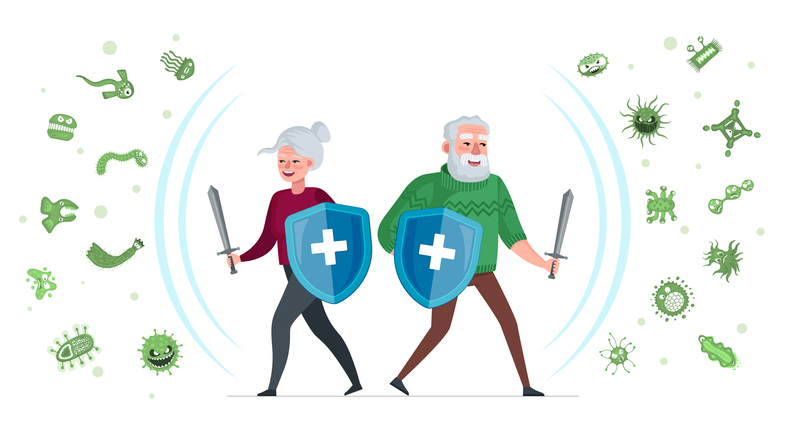The immune system consists of a collection of organs and cells that are responsible for preventing and fighting infections. T-cells, in particular, are capable of developing a long-term ‘immunological memory’, enabling the body to respond quickly and specifically to infection by pathogens it had encountered in the past. But is this memory retained even as we age? A team of researchers, led by Fabio Luciani of the University of New South Wales in Sydney and Katherine Kedzierska of the Doherty Institute for Infection and Immunity in Melbourne, asked this very question. Here are the results of their study published in Nature Immunology.
The study
In response, the team of scientists examined the T-cells of four groups of participants, consisting of newborns, school children, adults and those over 60, respectively. The participants underwent a simple blood sample, except for newborns, for whom the cell sample was instead obtained from the blood contained in the umbilical cord.
Do the cells of the immune system age?
“Based on previous studies, we expected to find that killer T-cells [a particular type of T-cell, ed.] in the elderly were less effective because they were exhausted or ‘asleep’,” explains Carolien van de Sandt, first author of the publication. In reality, what happens in the course of ageing is more complex and, from a certain point of view, surprising: analyses have shown that T-cells from the over 60s have gene expression profiles very similar to those of T-cells taken from infantswhich have not yet encountered many pathogens. This makes them less suitable for their function because it is as if, as they age, they lose their invaluable memory. This occurs through the expression of specific proteins on the cell membrane that enable T cells to rapidly recognize previously encountered pathogens.
The possible implications for vaccines
As shown by the results of several research studies, including a study published last year in the journal Cell, T-cells are key mediators in the response to vaccines such as those for influenza and also to those directed against Sars-CoV-2. According to Kedzierska, therefore, the present study not only contributes to the understanding of how the immune system evolves in the course of ageing, but could also contribute to the design of even more effective vaccines in protecting the most at-risk age groups: “Our results suggest that, if we want to boost killer T-cells through vaccination, timing can play an essential role in maintaining these optimal killer T-cells even in old age,” concludes Kedzierska: “This study represents a turning point for the research on immunity in old age. It has far-reaching implications and opens up new possibilities for the development of better vaccines and therapies suitable for different age groups’.







